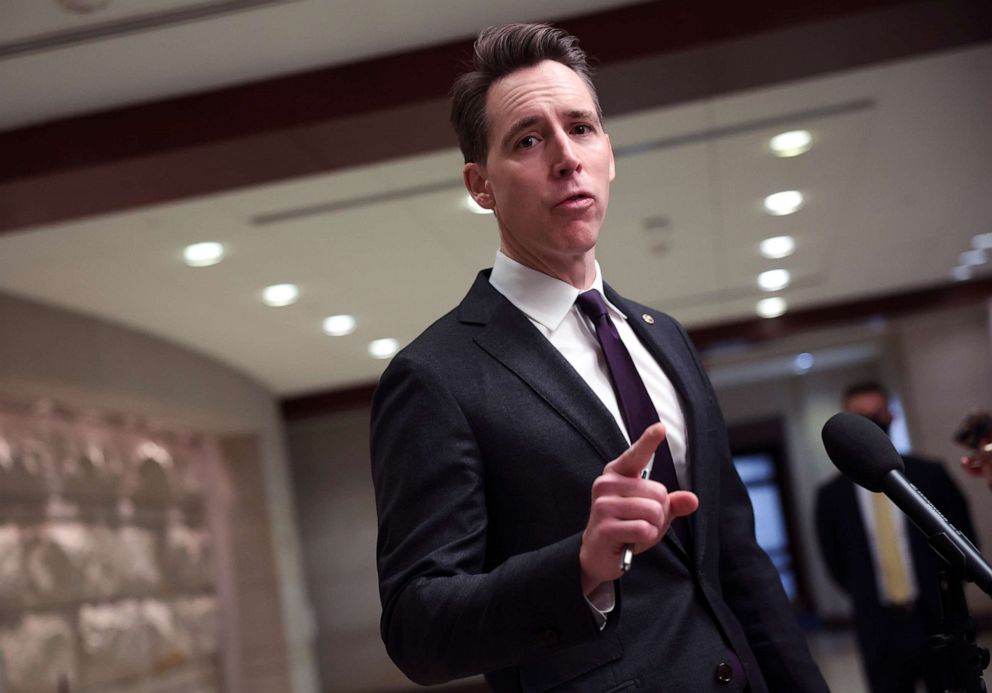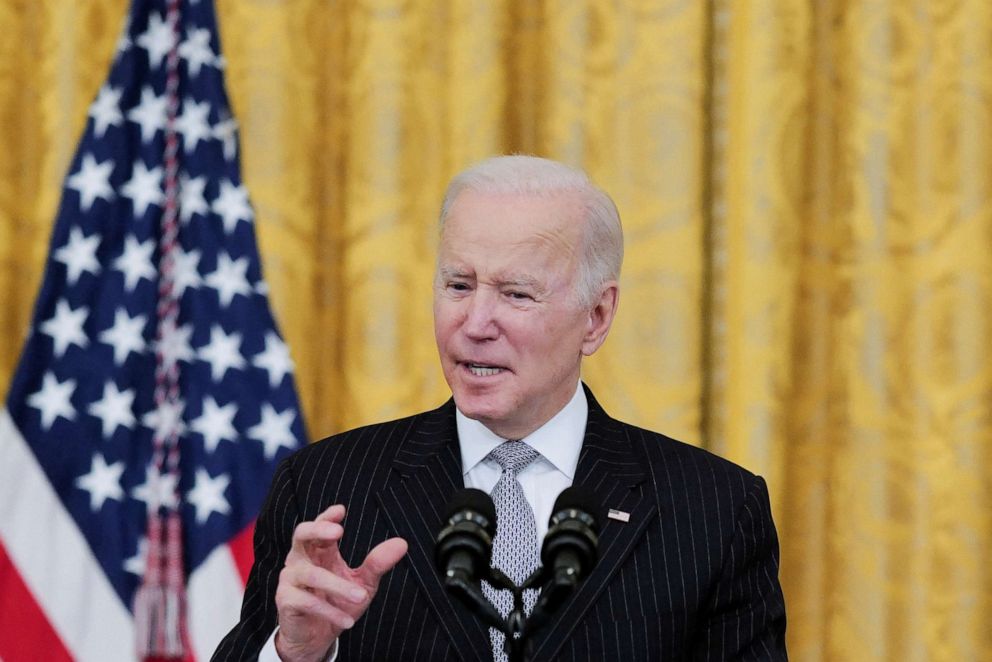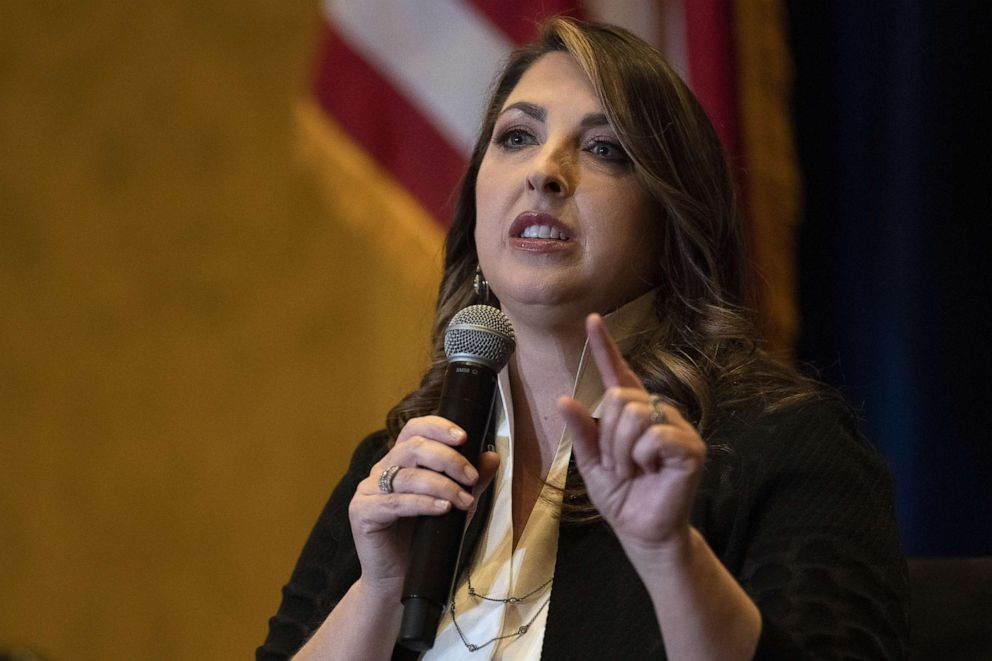Ukraine crisis exposes rifts inside both parties: The Note
The current standoff over Ukraine is creating unusual political circumstances.
The TAKE with Rick Klein
If there's potential for foreign policy to be a wedge issue for either party, it might feature angles that wind up cutting in both directions.
The current standoff over Ukraine is creating unusual political circumstances. President Joe Biden's latest troop deployments are getting a measure of bipartisan support, and a sanctions package could still draw the support of top Democrats and top Republicans in the Senate.
Yet it's hard to say at the moment where the center of gravity is on the issues at hand inside either party.
Senate Minority Leader Mitch McConnell, R-Ky., said he was "glad" to see Biden's troop movements to the region, and Sen. Lindsey Graham, R-S.C., said he supports them "completely." Meanwhile, Sen. Josh Hawley, R-Mo., called it a "mistake to send more American troops to Europe," ABC News' Allison Pecorin reports.

Among Democrats, even close allies of the Biden White House have been offering conflicting views on whether sanctions should be imposed on Russia before or after an invasion. Progressives have been quieter than usual, though the Congressional Progressive Caucus put out a statement last week warning, in part, that "there is no military solution out of this crisis."
The notion of sending U.S. troops to Eastern Europe to support Ukraine drew the support of only 28% of Republicans and 41% of Democrats in the ABC/Ipsos poll conducted last week.
It's a reminder that the Trump era exposed serious differences of vision among Republicans -- and that the Biden era hasn't made Democrats' disagreements on foreign policy fade away.
The RUNDOWN with Averi Harper
President Joe Biden's visit with Mayor Eric Adams in New York City on Tuesday to discuss anti-violence strategy is an opportunity for the commander in chief, who has experienced sinking approval numbers on gun violence and crime, to revive his standing on the issue with moderates.
Biden's visit comes shortly after an ABC/Ipsos poll that showed 69% of respondents disapproved of his handling of gun violence and 64% disapproved of his handling of crime more generally.

"The great beneficiary here isn't Eric Adams, it's Joe Biden," Hank Sheinkopf, a New York political consultant, told ABC News. "Adams symbolically embodies for Biden the things he needs to cling to right now, which is rational policy on crime while talking about social remedies."
Biden's visit comes after two NYPD officers were killed in the line of duty while responding to a domestic situation and after Adams, a former police officer, unveiled his "blueprint to end gun violence" to combat the flow of firearms into the city.
The Biden administration is marking the visit by rolling out an anti-gun violence plan of its own. On a call with reporters, senior administration officials said the Department of Justice would crack down on the flow of illegal guns trafficked up the East Coast and prioritize the prosecution of those who use ghost guns to commit crimes and who unlawfully sell firearms used in violent crimes.
The TIP with Brittany Shepherd
A family feud awaits the Grand Old Party at the Republican National Committee's winter meeting, which kicked off Wednesday in Salt Lake City, Utah.
There, key members across the wide spectrum of Republican ideology are expected to meet and consider a resolution to endorse removing from the GOP conference House Reps. Liz Cheney and Adam Kinzinger -- two members of Congress consistently outspoken against former President Donald Trump and the baseless notion that the election was "stolen" from him.
The pair caught flack from the GOP at large, partly because they supported Trump's impeachment. To that end, Cheney faces a burdensome primary to defend her House seat in Wyoming, while Kinzinger announced he is not seeking reelection in Illinois.
The highly anticipated resolution, pushed by Maryland RNC member David Bossie and reportedly supported by several other members of the party, is likely to be introduced Thursday at a Rules Committee meeting. If given the thumbs up by the committee, the resolution would be presented before the entire voting body of the RNC during a session Friday.
Of course, the RNC cannot formally control who serves in Congress, so any potential resolution would not be binding but more ceremonial in nature. Yet it is not without political consequence. The potential dissonance puts RNC Chair Ronna McDaniel in a tough spot. Back in November, she still considered Cheney a Republican. But forces from inside her conference may force her to change her tune.

It also opens the RNC up for lines of attack from Democrats who accuse the party of being under Trump's thumb.
NUMBER OF THE DAY, powered by FiveThirtyEight
9 state legislatures. That's the number of state legislatures that have tried to ban teaching "critical race theory" in schools so far, even though there was no indication that it was being taught in those states. And as Alex Samuels and Amelia Thomson-DeVeaux write for FiveThirtyEight, this type of escalation around culture war issues from Republicans poses a big messaging problem for Democrats moving into the 2022 midterms.
THE PLAYLIST
ABC News' "Start Here" Podcast. Start Here begins Thursday morning with ABC's Ian Pannell in Ukraine as the U.S. sends troops to Eastern Europe in response to Russia's military buildup. Then, ABC's Rebecca Jarvis talks about the future of Facebook amid a disappointing earnings report. And, ABC's Byron Pitts previews the ABC News Primetime special, 'Soul of a Nation Presents: X/onerated.' http://apple.co/2HPocUL
WHAT YOU NEED TO KNOW TODAY
Download the ABC News app and select "The Note" as an item of interest to receive the day's sharpest political analysis.
The Note is a daily ABC News feature that highlights the day's top stories in politics. Please check back Friday for the latest.




